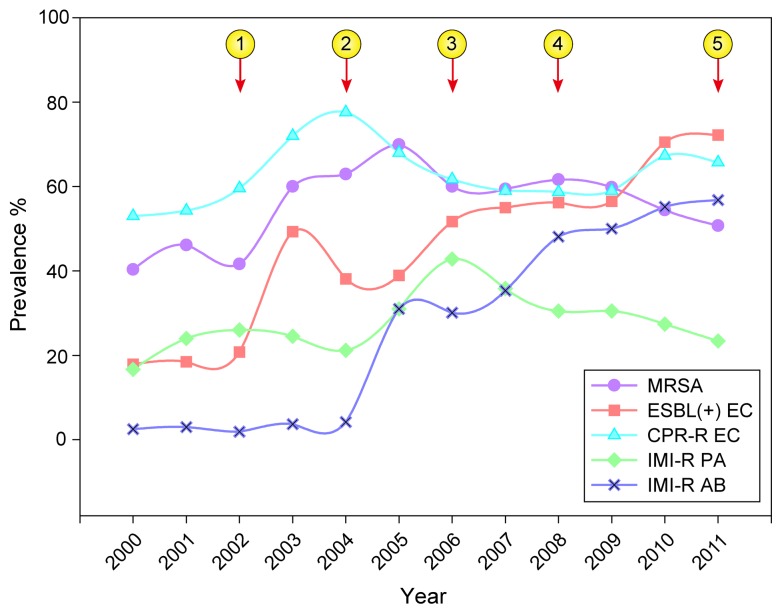Figure 1. Overall trends in prevalence of major antimicrobial-resistant bacteria in Chinese tertiary hospitals in 2000–2011.
The majority of the data were adapted from Mohnarin results, which mostly represent situations involving nosocomial infections in tertiary hospitals. The numbers in circles describe the chronology of major administrative interventions taken by the Chinese Ministry of Health.  indicates the issue of “temporary rules for pharmaceutical affairs in healthcare institutions” (2002);
indicates the issue of “temporary rules for pharmaceutical affairs in healthcare institutions” (2002);  indicates the issue of “guidance for the clinical use of antimicrobials” (2004);
indicates the issue of “guidance for the clinical use of antimicrobials” (2004);  indicates the issue of “regulations for management of nosocomial infections' (2006);
indicates the issue of “regulations for management of nosocomial infections' (2006);  indicates the issue of recommendations for enhancing the prevention and control of multidrug resistant bacterial infections (2008); and
indicates the issue of recommendations for enhancing the prevention and control of multidrug resistant bacterial infections (2008); and  indicates the special campaign initiated in 2011. MRSA, methicillin-resistant Staphylococcus aureus; ESBL (+) EC, extended-spectrum β-lactamase-producing Escherichia coli; CPR-REC, ciprofloxacin-resistant E. coli; IMI-R PA, imipenem-resistant Pseudomonas aeruginosa; IMI-R AB, imipenem-resistant Acinetobacter baumannii.
indicates the special campaign initiated in 2011. MRSA, methicillin-resistant Staphylococcus aureus; ESBL (+) EC, extended-spectrum β-lactamase-producing Escherichia coli; CPR-REC, ciprofloxacin-resistant E. coli; IMI-R PA, imipenem-resistant Pseudomonas aeruginosa; IMI-R AB, imipenem-resistant Acinetobacter baumannii.

